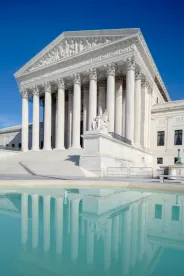The US Supreme Court recently held that under the Class Action Fairness Act (CAFA), a defendant need not provide proof of the amount in controversy in its notice of removal to federal court. Only a plausible allegation is required that the amount in controversy meets or exceeds CAFA’s $5 million jurisdictional requirement. This decision clarifies that there is no higher pleading standard to remove a class action under CAFA than in an individual action.
Plaintiff, Brandon Owens, filed a class action in a Kansas state court alleging defendants, Dart Cherokee Basin Operating Company, LLC, and Cherokee Basin Pipeline, LLC (Dart), underpaid royalties owed to class members under oil and gas leases. The complaint did not allege a specific amount in controversy. Dart removed to federal court under CAFA, which permits federal jurisdiction for certain class actions if the amount in controversy exceeds $5 million. In its notice of removal, Dart stated the alleged underpayments totaled more than $8.2 million. Owens moved to remand to the state court arguing the removal was deficient because it included no evidence of Dart’s $8.2 million estimate. The district court accepted Owens’s argument, reading Tenth Circuit precedent to require proof of the amount in controversy in the notice of removal itself. The Tenth Circuit denied review.
The Supreme Court held that evidence of the amount in controversy is not required because the removal statute expressly requires only a short plain statement of the grounds for removal. The majority reasoned that the defendant’s pleading burden in a notice of removal is the same as the plaintiff’s in its complaint, and that an amount-in-controversy allegation should be accepted if plausible, made in good faith and not contested by the plaintiff or the court. The Court also rejected any notion of a presumption against removal in CAFA cases. Thus, evidence establishing the amount in controversy is not required to remove under CAFA. Rather, evidentiary submissions will only be required post-removal if the plaintiff or the district court questions the defendant’s allegations. The case was remanded for further proceedings.
Dart Cherokee Basin Operating Co., LLC v. Owens, 135 S.Ct. (2014).




 />i
/>i
